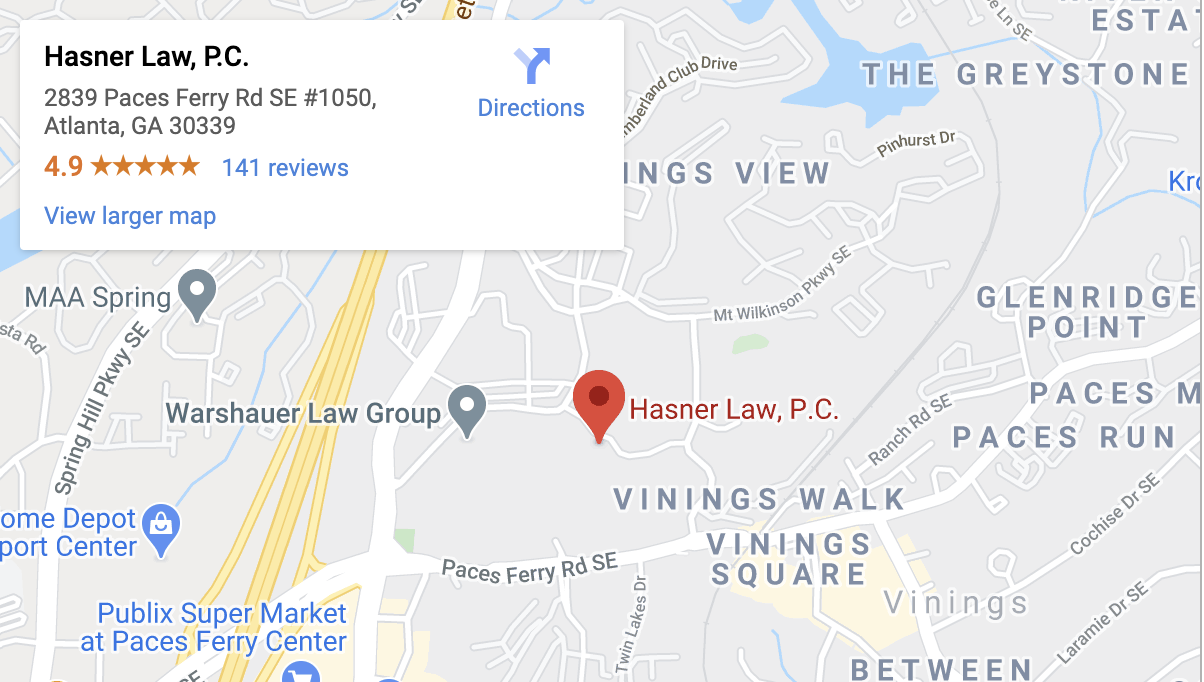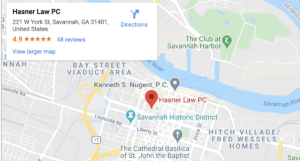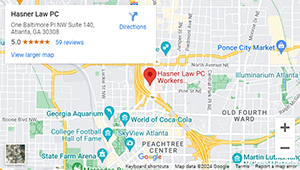Atlanta Motorcycle Licensing Requirements

When you operate a motorcycle in Atlanta, Georgia, you need to have a license just as you do to drive a car. However, motorcycles require unique skills and different issues to consider when on the road, so the licensing requirements for operating a motorcycle are different from the typical automobile driver’s license.
Before getting on the road, be sure you are complying with all licensing requirements for operating a motorcycle in Atlanta.
What Qualifies as a Motorcycle?

In the state of Georgia, if a motor vehicle with fewer than four wheels has a saddle and is controlled by handlebars, then it qualifies as a “motor-driven cycle” or motorcycle. This classification covers motorbikes, scooters, and mini-bikes with an engine of 51cc or greater, but does not include tractors or mopeds whose engine is not over 50cc in size.
Types of Motorcycle Licenses in Georgia

In order to legally operate a motorcycle in Atlanta, you must have one of the following:
- Class M license (M): Allows the holder to operate a 2- or 3-wheeled motorcycle
- Class M Instructional Permit (MP): A motorcycle instructional permit issued to those learning how to operate a motorcycle on public roads or highways.
The Class M is an actual license, while the MP is simply a permit with restrictions, but you must be in possession of one or the other to legally operate a motorcycle on Georgia roads and highways.
Requirements For a Class M Motorcycle License
In order to qualify for a Class M motorcycle license, you must first meet the following basic requirements:
- You must be 17 or older.
- If you are under 18, you need a parent or other responsible guardian/adult to sign the Driver’s License/ID/Permit form and submit the Responsible Adult Affidavit.
- A Certificate of School Enrollment (Form DS-1) must be shown if you are under 18.
- Additionally, you must take a vision test unless you passed such a test as part of another license issued within the last year.
There are two ways to obtain a Class M motorcycle license:
- Option 1: The state offers a Motorcycle Safety Program that provides training in handling motorcycles. If you complete the course successfully, you will receive a 90-day Motorcycle License Test Waiver. This means you don’t have to take the tests typically required when you apply for a license.
- Option 2: Apply for a license directly at a customer service center; must pass a knowledge test as well as an on-cycle road test.
The Motorcycle Safety Program will provide a motorcycle for training. If you apply for a license directly, you are required to supply your own motorcycle.
The Knowledge Test
The Knowledge Test questions are based on the information provided in the Georgia Motorcycle Operators Manual. The manual contains safe practices, road rules, and other critical information for operating a motorcycle on Georgia roads and highways.
Rider Skills Test
You must pass a test demonstrating your skills on a motorcycle. The skills test puts the rider through sets of exercises to assess motorcycle-handling proficiency. The test evaluates how well you control the motorcycle and how you would avoid crashes in both normal and dangerous traffic.
You must bring your own motorcycle, which must pass a safety inspection by the examiner prior to the skills test. Your motorcycle can be single-track, with a sidecar, or three-wheeled. Motorcycles with sidecars and three-wheeled vehicles maneuver differently and your skills will be assessed accordingly.
The Rider Skills Test is conducted at 15-20 miles per hour, and you will be scored on time/distance standards and path violations. If you score too many penalties, operate in an unsafe manner, or fail to properly follow directions, the test may be ended.
Be sure you arrive prepared for the test. You must have a compliant helmet, eye protection, and closed toe shoes. For safety, you should have long sleeves, long pants, and gloves. You must also bring your own motorcycle.
Requirements For a Class MP Instructional Permit
If you pass a vision test and a test of motorcycle knowledge, you can receive a learner’s permit to operate your motorcycle on Georgia roads and highways.
To qualify:
- You must be at least 16.
- Applicants 16 years of age must complete a Georgia Driver Training/Education Course with 30 hours in the classroom and 6 hours practical instruction behind the wheel.
- If you’re under 18, a responsible adult (whether legal guardian or parent) is required to sign the Form for Driver’s License/ID/Permit and submit a Responsible Adult Affidavit. The signing adult has the authority to request that the permit be revoked at any time until the minor’s 18th birthday.
- A Certificate of School Enrollment must be shown if you are under 18.
Because the MP Permit is only a learner’s permit, it comes with certain restrictions:
- You may ride only during daylight hours.
- Passengers are not allowed.
- You cannot ride on roadways with limited access.
- Must comply with legal prescriptions for safety equipment.
This Class MP permit is good for six months.
Have More Questions About Motorcycle Licensing Requirements? Contact Our Atlanta Motorcycle Accident Law Firm Today
If you have any questions or concerns about what you need to do to be able to legally operate a motorcycle in Atlanta, Georgia, or if you’ve been hurt in a motorcycle accident and suspect the rider didn’t have a motorcycle license in Georgia, Hasner Law Injury & Workers’ Compensation Attorneys can help. Contact our Atlanta personal injury lawyers at (678) 888-4878 to discuss your options today. Your first consultation is absolutely free.






